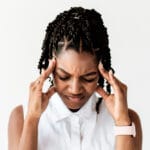Dementia is not a single disease—it’s a group of conditions that cause problems with memory, thinking, behavior, and the ability to perform everyday activities. It mostly affects older adults but is not a normal part of aging.
Key Signs and Symptoms of Dementia:
- Memory Loss:
- Forgetting names, events, or appointments
- Asking the same questions repeatedly
- Confusion:
- Getting lost in familiar places
- Trouble recognizing people or places
- Difficulty with Tasks:
- Struggling with simple tasks like cooking, dressing, or managing money
- Language Problems:
- Trouble finding the right words
- Difficulty following conversations
- Mood & Behavior Changes:
- Anxiety, depression, irritability
- Acting out of character
- Poor Judgment:
- Making unsafe decisions
- Falling for scams or forgetting to pay bills
- Changes in Personality:
- Becoming suspicious, fearful, or withdrawn
Common Types of Dementia:
- Alzheimer’s Disease (Most Common) – Gradual memory loss and confusion
- Vascular Dementia – Caused by poor blood flow to the brain (often after a stroke)
- Lewy Body Dementia – Memory problems with movement issues and hallucinations
- Frontotemporal Dementia – Affects behavior, language, and personality
- Mixed Dementia – Combination of two or more types (e.g., Alzheimer’s + Vascular)
What Causes Dementia?
- Brain cell damage due to diseases like Alzheimer’s
- Strokes or poor blood flow to the brain
- Infections (like HIV, syphilis)
- Brain injuries
- Vitamin deficiencies (B12)
- Chronic alcohol use
When to See a Doctor:
- Memory loss affecting daily life
- Confusion or getting lost in familiar places
- Sudden behavior changes
- Severe mood swings
- Trouble speaking, walking, or seeing clearly
Some causes of memory loss are treatable, like vitamin deficiencies, infections, or depression. Early diagnosis can help.
How is Dementia Diagnosed?
- Medical history & physical exam
- Cognitive tests (memory, language, thinking skills)
- Brain scans (CT or MRI)
- Blood tests to rule out other problems
Is There a Cure?
- No cure for most types, but treatments can slow progression and improve quality of life.
- Medications for memory and behavior symptoms (like donepezil, memantine)
- Therapies: Cognitive stimulation, memory exercises
Caring for Someone with Dementia:
- Create a safe, structured environment
- Use reminders and routines
- Label items around the house
- Provide emotional support
- Encourage physical activity and a healthy diet
How to Reduce the Risk of Dementia:
- Exercise regularly
- Eat healthy (fruits, vegetables, less processed food)
- Control blood pressure, diabetes, and cholesterol
- Stay mentally active (reading, puzzles, learning new skills)
- Avoid smoking and limit alcohol
Quick Facts:
- Dementia is not a normal part of aging.
- Early signs include memory loss, confusion, and mood changes.
- Early diagnosis helps with better management.
- Healthy lifestyle choices can reduce the risk.




